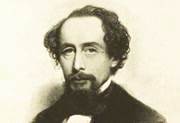
On November 18, 1995, Itzhak Perlman, the famous musician, came on stage to give a concert. If you have ever been to a Perlman concert, you know that getting on stage is no small achievement (成就) for him. He suffered from a disease as a child, and so he walks with the help of two walking sticks.
The audience (观众) sat quietly while he makes his way across the stage to his chair and begins his play. But this time, something went wrong. Just as he finished the first few bars, one of the strings (弦) on his violin broke. We thought that he would have to stop the concert. But he didn't. Instead, he waited a moment, closed his eyes and then signaled the team to begin again.
Of course, anyone knows that it is impossible to play a pleasant work with just three strings. I know that, and you know that, but that night Itzhak Perlman refused to know that.
When he finished, there was a breathtaking silence in the room. And then people rose and cheered. He smiled and said—not proudly, but in a quiet attitude—“You know, sometimes it is the artist's task to find out how much music you can still make with what you have left.”
This powerful line has stayed in my mind ever since I heard it. And who knows? Perhaps that is the meaning of life—not just for artists but for all of us.
So, perhaps our task in this fast changing, puzzling world in which we live is to make music, at first with all that we have, and then, when that is no longer possible, to make music with what we have left.

Charles Dickens (1812—1870), the great nineteenth century English novelist, was born near Portsmouth. His father ran heavily into debt (债) and when he was twelve, he had to go and work in a factory. The only formal education he received was a two-year schooling at a school for poor children. In fact, he had to teach himself all he knew. He worked for a time in a lawyer's office. After that, he worked as a reporter in the law courts, and later for London newspapers. His life as a writer of novels began in 1833 with short stories and essays in newspapers, and in 1837 his novel “The Pickwick Papers” made him the most popular author at his time in England.
He was a great observer (观察者) of people and their places because he was concerned about life and conditions in mid-nineteenth century London. He wrote 19 novels all his life and in many of them, Dickens gave a picture of all classes of England society, showing deep concern for the poor.
Many of his novels like “Oliver Twist”, “David Copperfield”, “Nicholas Nickleby”, “Great Expectations”, “A Tale of Two Cities” and so on drew attention to the unfair social conditions that existed in England over a hundred years ago. Dickens wished to see improvement in the living conditions of the poor, but failed to find any useful method to achieve that goal.
rely on; dream of; break up; play jokes on; get familiar with; to be honest; be attached to; in cash; or so; pay for |
增加:在缺词处加一个漏子符号(∧)并在其下面写出该加的词。
删除:在错的词下划一横线,并在该词下面写出修改后的词。
注意:1). 每处错误及其修改均仅限一词;
2). 只允许修改10处,多者(从第11处起)不计分。
My dream school starts at 8:30 a.m. and ends at 3:30 p.m. They are three lessons in the morning and two in the afternoon. We didn't need to do so many homework. Therefore, we have more time with after-school activities. For example, we can do reading for one and a half hour and play sports for one hour every day.
My dream school look like a big garden. There are all kinds of the flowers and trees around the classroom buildings. We can lie on the grass for a rest, or sat by the lake listening music. The teachers here are kind and helpfully. They are not only our teachers but also our friends.